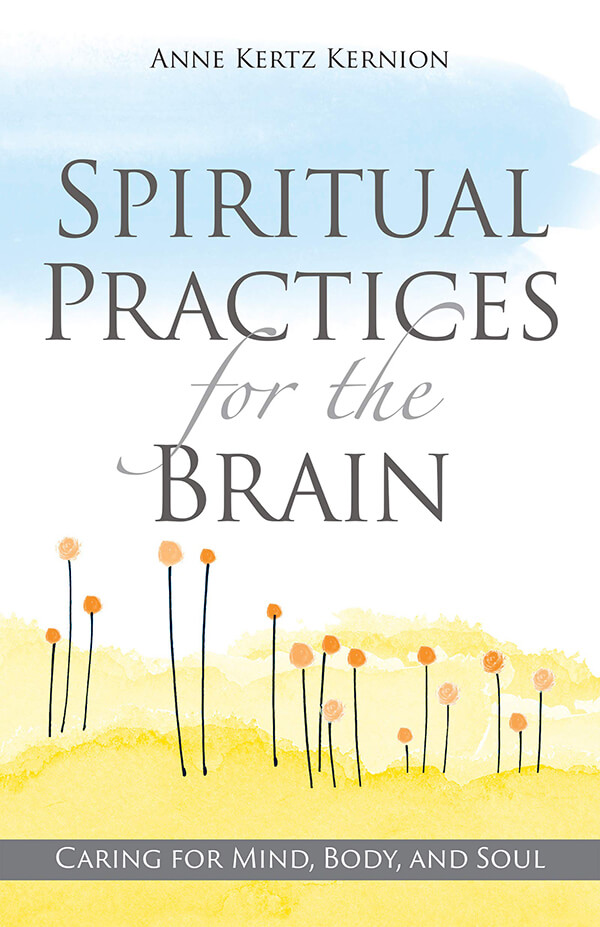
Book review: ‘Spiritual Practices for the Brain’
“Spiritual Practices for the Brain.” By Anne Kertz Kernion. Chicago: Loyola Press, 2020. 163 pages. Paperback: $14.99; Kindle: $7.99; Nook: $10.49.
I admire the saints. Although I am impressed with the monumental things they were able to accomplish, I think what captivates my imagination the most is the sense of inward calm they all seem to have found. That inner peace opened them up to God, and from that place, they were able to find the holy in all things. Their spirituality ran deep and true.
For those of us who would like to imitate the saints on that deeper level, Anne Kertz Kernion’s book, “Spiritual Practices for the Brain,” may be precisely the guide the 21st-century seeker needs. Science, it turns out, confirms what the saints knew all along; certain spiritual practices have a measurable and positive effect, not only on our souls, but on our brains and overall health as well. As we continue to confront the lingering effects of a crippling pandemic, any advice on how to find such solace is welcome.
Much of what Kernion teaches in this book will not be entirely unfamiliar; in fact, in many places what she introduces is not so much something new as a reminder of something already known. Engaging in service to others is part of many people’s lives, for instance, as is taking time to be in nature. What Kernion does is tell us the scientific “why” behind what we knew instinctively and gives us advice about how to enhance the good these things do for us and the people around us.
Even the busiest of readers can find time to do what she suggests in the first chapter, and that is breathing. “Consciously taking a few breaths grounds us in the moment and illustrates how breathing is a fundamental aspect of spirituality,” she says. “The Hebrew word ‘ruach’ means ‘breath’ or ‘wind’ or ‘spirit’ and is the animating dynamic of creation … when we breathe, we are infusing our lives with Spirit and paying better attention to our gift of life.”
She then introduces several practices that focus on ways to breathe that nourish both body and soul.
In subsequent chapters, Kernion invites us to discover — or rediscover — traditional Judeo-Christian practices, many of which we find in Scripture. Others reach as far back as the Desert Fathers and Mothers of the third century: silence, solitude, meditation, contemplation and an active awareness of gratitude.
“Ponder a few of the ordinary gifts you take for granted,” she writes in one of her “Practice” sidebars. “(Things like) family, health, friends, house, job, food, etc. Maybe write one or more on a piece of paper or a sticky note. Imagine what life would be like without just one of them. Take a moment to acknowledge your thankfulness. Breathe in gratitude.”
Conscious gratitude, it turns out, not only keeps negative thoughts at bay by reminding us of abundant blessings, but it benefits our physical health as well. We will be motivated to exercise more, sleep better and make our hearts stronger and healthier.
If this book is read for no other reason, the sections on how to truly listen to someone (the chapter entitled “Developing Empathy and Kindness”) and how to control the distractions of technology (in a chapter of the same name) would make it worth the time.
One of the things Kernion points to that encompasses both of these things is our modern tendency to constantly check our devices – and, she points out, when we are engaging in a face- to-face conversation with someone, nothing screams “I’m really not listening to you” like looking at and paying attention to every ping of our phones.
Kernion covers a lot of ground in her book; for a quick reference to each of her points, she ends with and alphabetical list of what she calls “Exercises for Brain Health.” Even doing a few of them will make a difference in how you feel – body and soul.
Author bio:
Anne Kertz Kernion, founder of the inspirational greeting card company Cards by Anne, is an international retreat leader, holding an master’s degree in theology from Duquesne University. She is the author of “A Year of Spiritual Companionship.” A frequent public speaker on the intersection of neuroscience and spirituality, she draws on her expertise in science and theology to inform and enrich daily spiritual practices. She and her husband, Jack, have three grown children and six grandchildren.

